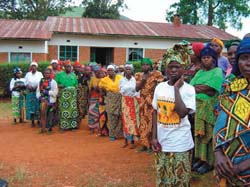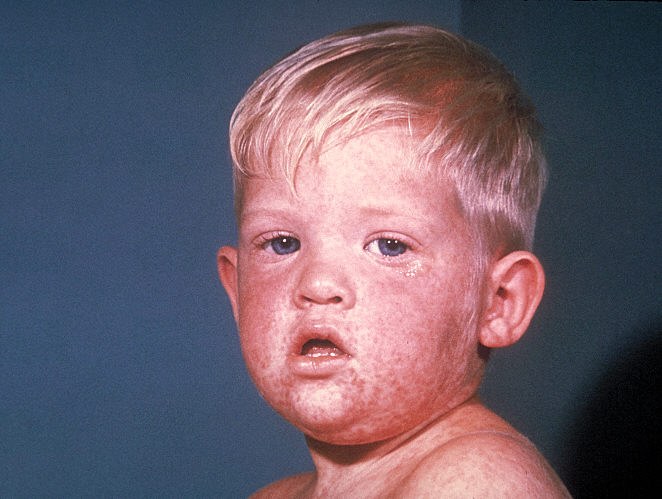
"News with equal focus on each person"
| 22 March 2005 | Archive | Subscribe for free by E-mail
or |
|
The Bottom 10 News StoriesBy Ruth Gidley (Reuters) USAID/Leah Werchick
Rape victims near Walungu, South Kivu, in DR Congo
Brutal conflicts in Congo, Uganda and Sudan are the world's three biggest "forgotten emergencies," each dwarfing the toll of the Asian tsunami but attracting scant media interest, a Reuters poll of experts showed in March. War in Democratic Republic of Congo has claimed at least 10 times as many lives as the December tsunami yet remains almost unheard of outside of Africa, key players in the aid world said. "It's the worst humanitarian tragedy since the Holocaust," said John O'Shea, chief executive of Irish relief agency GOAL. "The greatest example on the planet of man's inhumanity to man." Reuters AlertNet, a humanitarian news Web Site run by Reuters Foundation, asked more than 100 humanitarian professionals, media personalities, academics and activists which "forgotten" crises the media should focus on in 2005. After Congo, they chose northern Uganda, south and west Sudan, West Africa, Colombia, Chechnya, Nepal and Haiti as the most neglected humanitarian hotspots. They also highlighted the global AIDS pandemic and other infectious diseases such as malaria and tuberculosis as "silent tsunamis" that kill millions every year. "Africa experiences the devastating effect of two tsunamis every month," said Amy Slorach, appeal coordinator for British relief organization Tearfund. Many experts accused the Western media of routinely ignoring emergencies in countries of little geopolitical significance for big powers despite the enormous scale of suffering. "One television news producer we met in the U.S. summed up the situation since spring 2003 this way: 'Look, we've got three foreign news priorities these days: Iraq, Iraq, Iraq,'" said Gareth Evans, head of the International Crisis Group think tank. "And Iraq is not simply an American obsession. We've heard a similar refrain from news producers and newspaper editors again and again throughout Europe and elsewhere." Almost half of those polled--including U.N. relief coordinator Jan Egeland and U.S. leftwing intellectual Noam Chomsky--nominated Congo, citing the brutality of an ugly, tangled war that has killed nearly 4 million people since 1998. Congo's war officially ended in 2003, but fighting still rages in parts of the east, and the United Nations estimates that 3 million people are cut off from desperately needed aid. "The human suffering is mind-boggling," said Lindsey Hilsum, international editor for Britain's Channel 4 News. "The wickedness and cruelty of the armed men who kill and maim and rape defies belief." The details of northern Uganda's 18-year war, ranked second in the AlertNet poll, are just as shocking. More than 20,000 children have been abducted by a cult-like rebel group and forced to serve as soldiers and sex slaves, while most of the population in the conflict zone have been forced from their homes into squalid camps, say aid agencies. "Like many people, I didn't have any idea of the scale of this conflict," said British Hollywod star Helen Mirren, who traveled to Uganda with relief agency Oxfam. "Nearly two million people have been made homeless and hundreds of thousands more have been killed." OFF THE FRONT PAGES The experts' third most neglected emergency was Sudan, where Africa's longest-running civil war has raged for two decades in the south and almost two years of atrocities in the western Darfur region have raised the spectre of genocide. "Darfur has slipped from the front pages, but the situation there is again going from terrible to being absolutely horrendous," U.N. relief coordinator Jan Egeland said. The poll also highlighted misery in West Africa after bloodletting in Liberia, Ivory Coast and Sierra Leone, along with suffering in conflict-riven Chechnya, Nepal and Haiti. Experts urged the media not to ignore the impact of the HIV/AIDS pandemic sweeping sub-Saharan Africa and threatening to explode in India and China, the world's most populous countries. They also drew attention to lesser-known AIDS threats in Eastern Europe, the Caribbean and Papua New Guinea, along with other infectious diseases. Malaria kills an African child every 30 seconds, while tuberculosis kills about 2 million a year worldwide. |
Measles Deaths Almost Cut By Half Over Five YearsFrom WHO/UNICEF US Centers for Disease Control
Boy with measles
The World Health Organization (WHO) and the United Nations Children's Fund (UNICEF) this month announced that countries are on target to halve deaths from measles, a leading vaccine-preventable killer, by the end of this year. Global measles deaths have plummeted by 39%, from 873,000 in 1999 to an estimated 530,000 in 2003. The largest reduction occurred in Africa, the region with the highest burden of the disease, where estimated measles deaths decreased by 46%. "Progress of this magnitude is remarkable. I congratulate countries for their successful efforts in protecting children from measles," said Dr Lee Jong-wook, WHO Director-General. "I am certain that with increased commitment from governments and further support from the international community, even more can be accomplished." Measles is an important cause of childhood deaths. Only a decade ago, measles killed millions of children each year and affected 30 million more, leaving many with life-long disabilities like blindness and brain damage. "In many places where families once lived in fear of losing their children to measles, they're now protected by an effective and inexpensive vaccine," said Carol Bellamy, Executive Director of UNICEF. "What clearer proof could there be of the value of investing in immunization?" The dramatic decline in measles deaths is made possible through the commitment of governments to fully implement the WHO/UNICEF strategy for sustainable measles mortality reduction. The strategy seeks to achieve routine measles immunization coverage of at least 90% in every district and to ensure that every child from nine months to 14 years of age receives a "second opportunity" for measles immunization through routine services or supplementary immunization activities (SIAs) every three to four years. The SIAs have proven especially effective. From 1999 to 2003, more than 350 million children throughout the world were vaccinated against measles through SIAs. As measles wards shut down all over the African continent, a long-term budget item in many hospitals can be freed up to save children from other diseases.  Measles vaccination in Tanzania
"We now have the opportunity to replicate this successful model as we tackle other child killers such as malaria," Bellamy said, noting that in late 2004, Togo's children received four life-saving interventions at once. The landmark campaign reached over 95% of the children under-five with vaccines to prevent measles and polio, mosquito nets to prevent malaria and de-worming tablets. Millions of children still remain at risk from measles. Malnourished and un-immunized children under five years of age, especially infants, are at high risk of contracting measles and are more vulnerable to death. The vast majority of measles deaths are found in low-income countries. Each year more than 130 million children are born and "we must reach each and every one with measles vaccination," said Dr Lee. The strong support of the Measles Initiative has been an important factor in the marked reduction of measles deaths in Africa. Launched in 2001, this successful partnership's core founding members are WHO, UNICEF, the American Red Cross, the United Nations Foundation and the Centers for Disease Control and Prevention of the United States Department of Health and Human Services. Since 2001, the Initiative has mobilized more than US $144 million and has helped African countries vaccinate over 150 million children against measles. Other key partners include the governments of Australia, Canada, Japan and the United Kingdom as well as the International Federation of Red Cross and Red Crescent Societies, the Global Alliance for Vaccines and Immunization (GAVI) and the Bill & Melinda Gates Foundation. In some regions, measles has already been eradicated. In the United States, the Centers for Disease Control announced on March 21 that measles has been eliminated from the country, except for occasional imported cases. CDC Director Dr. Julie Gerberding said, "We should take pride in this accomplishment, and also recognize that we must maintain our vigilance or we can see a resurgence of disease." |
||
| How is Human News different? | Links | Contact Human News | |